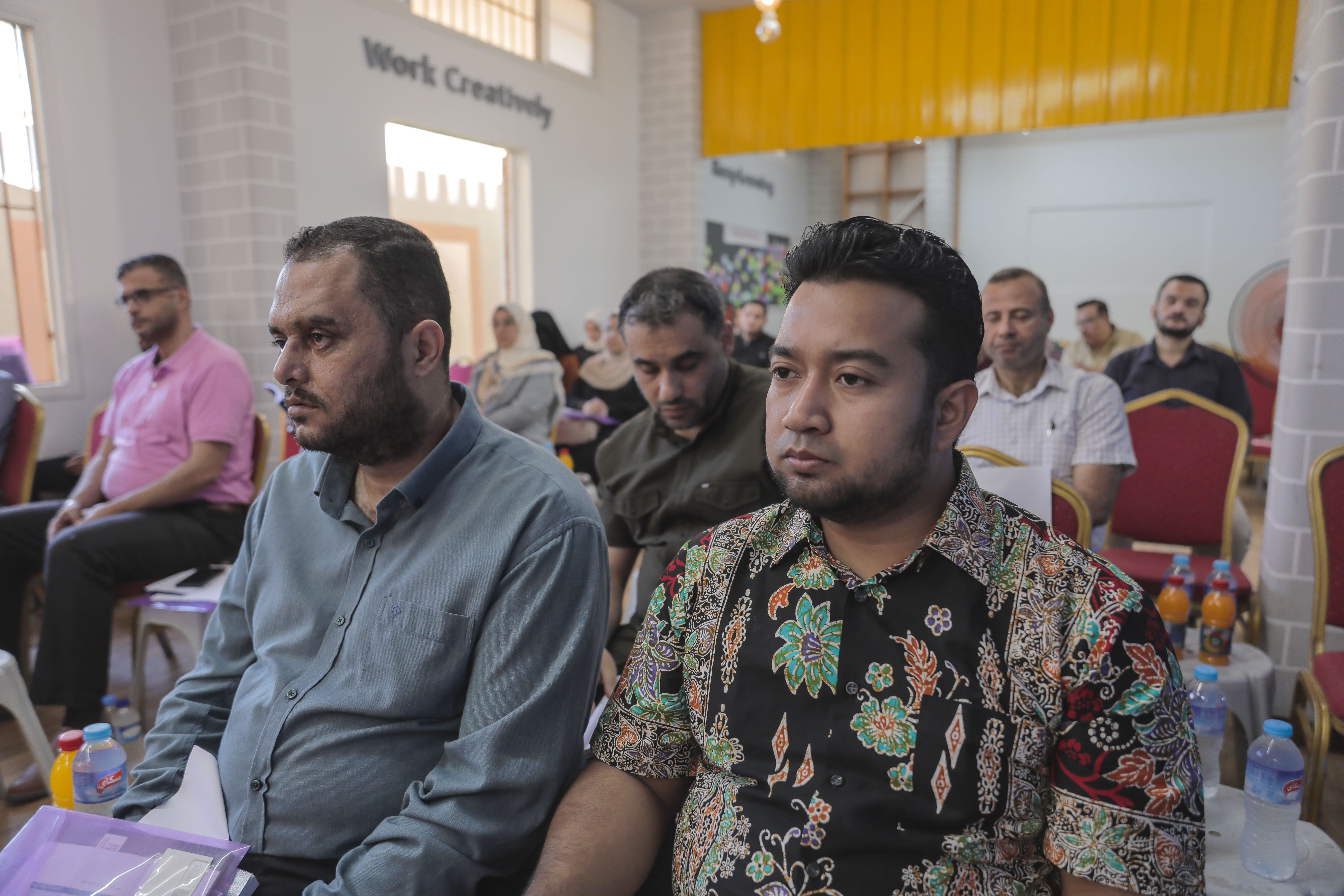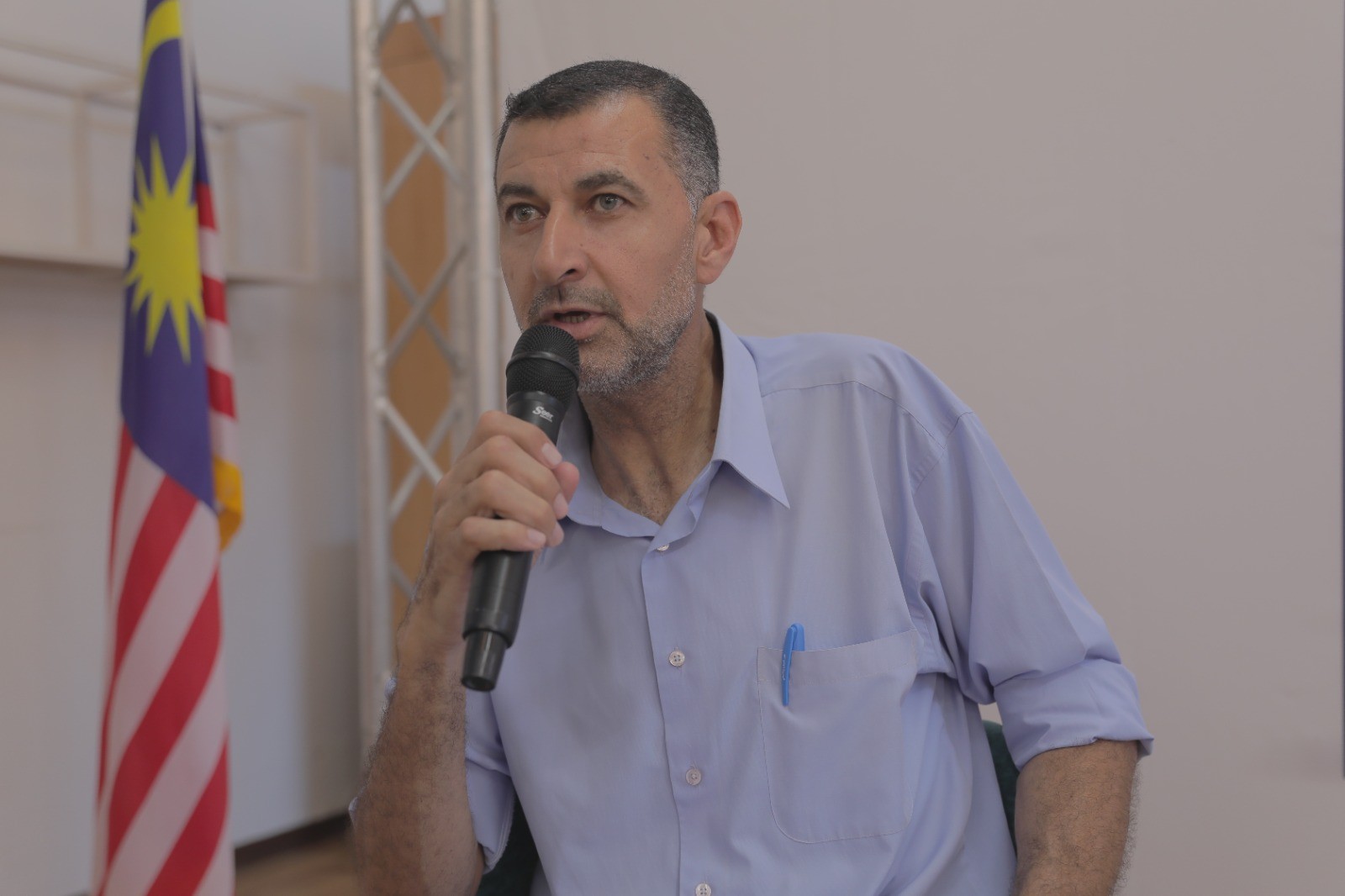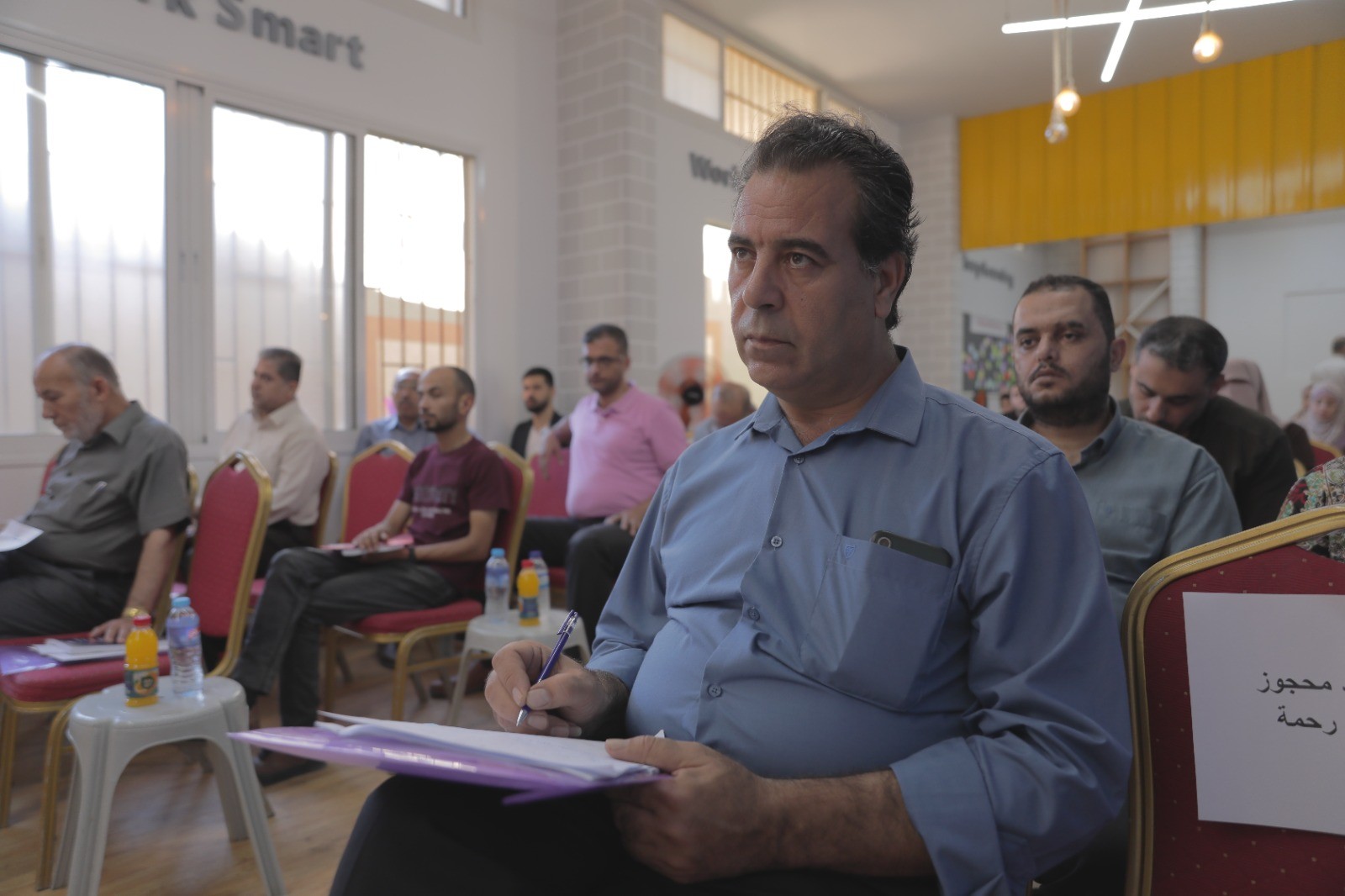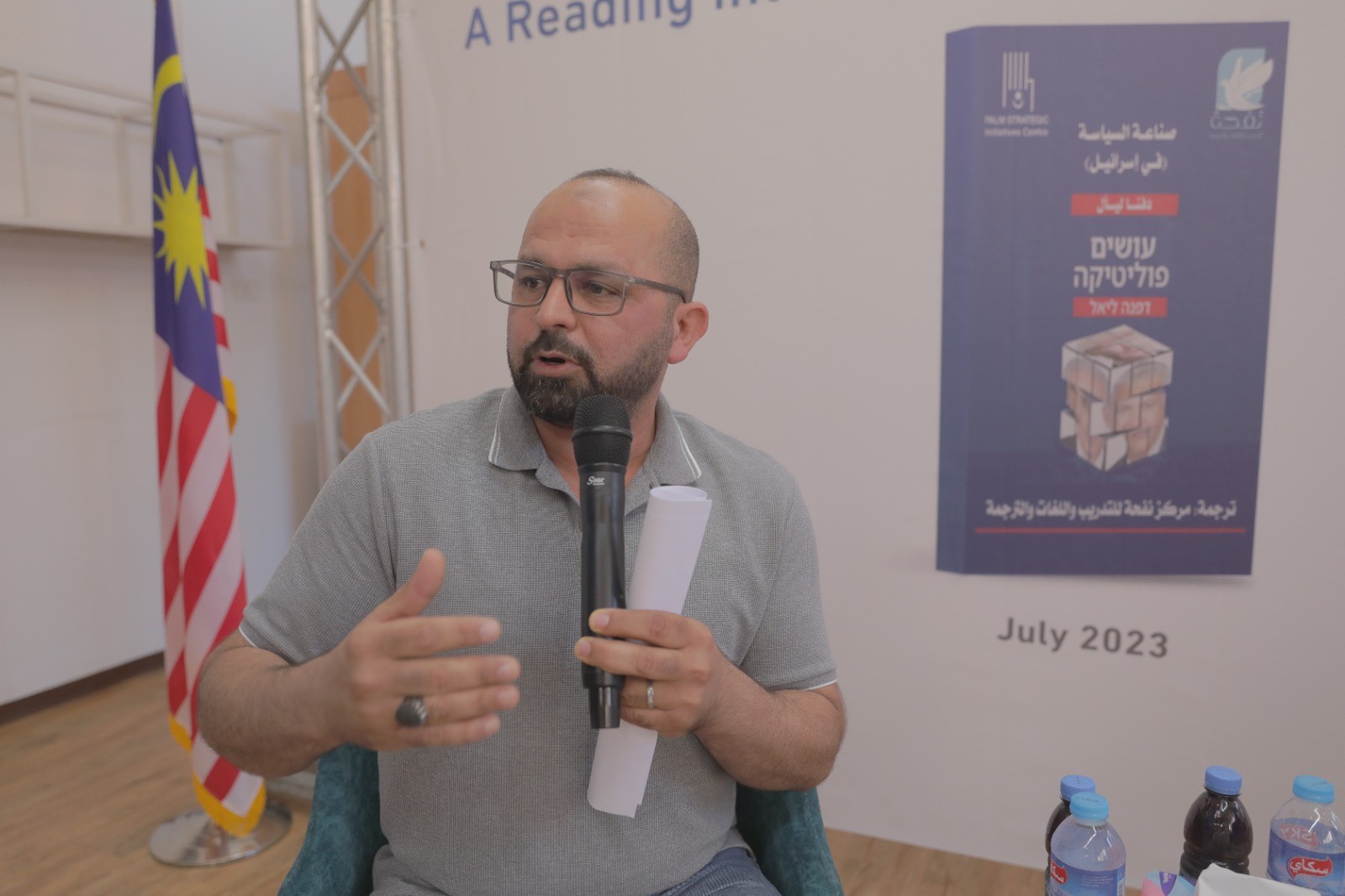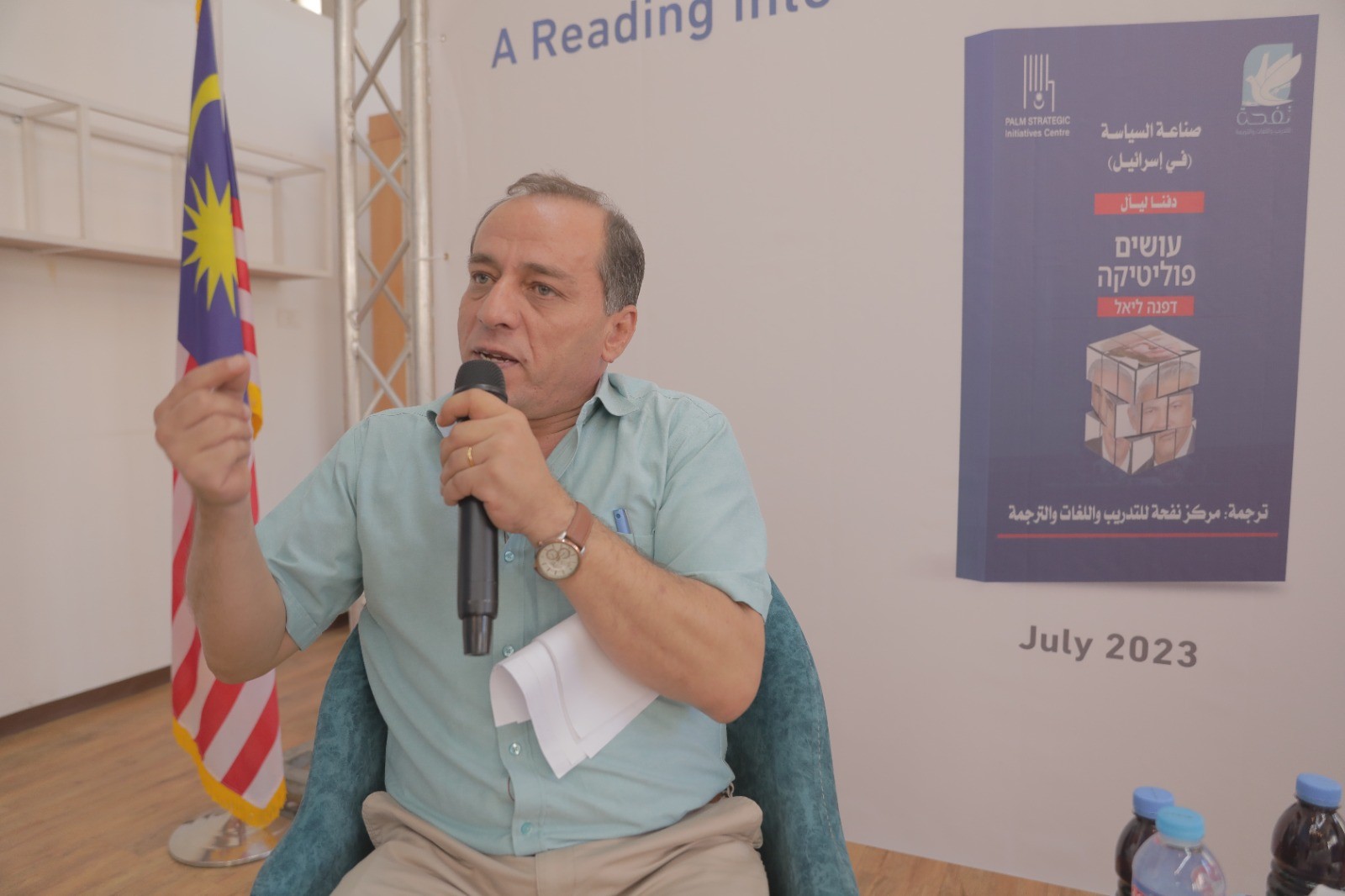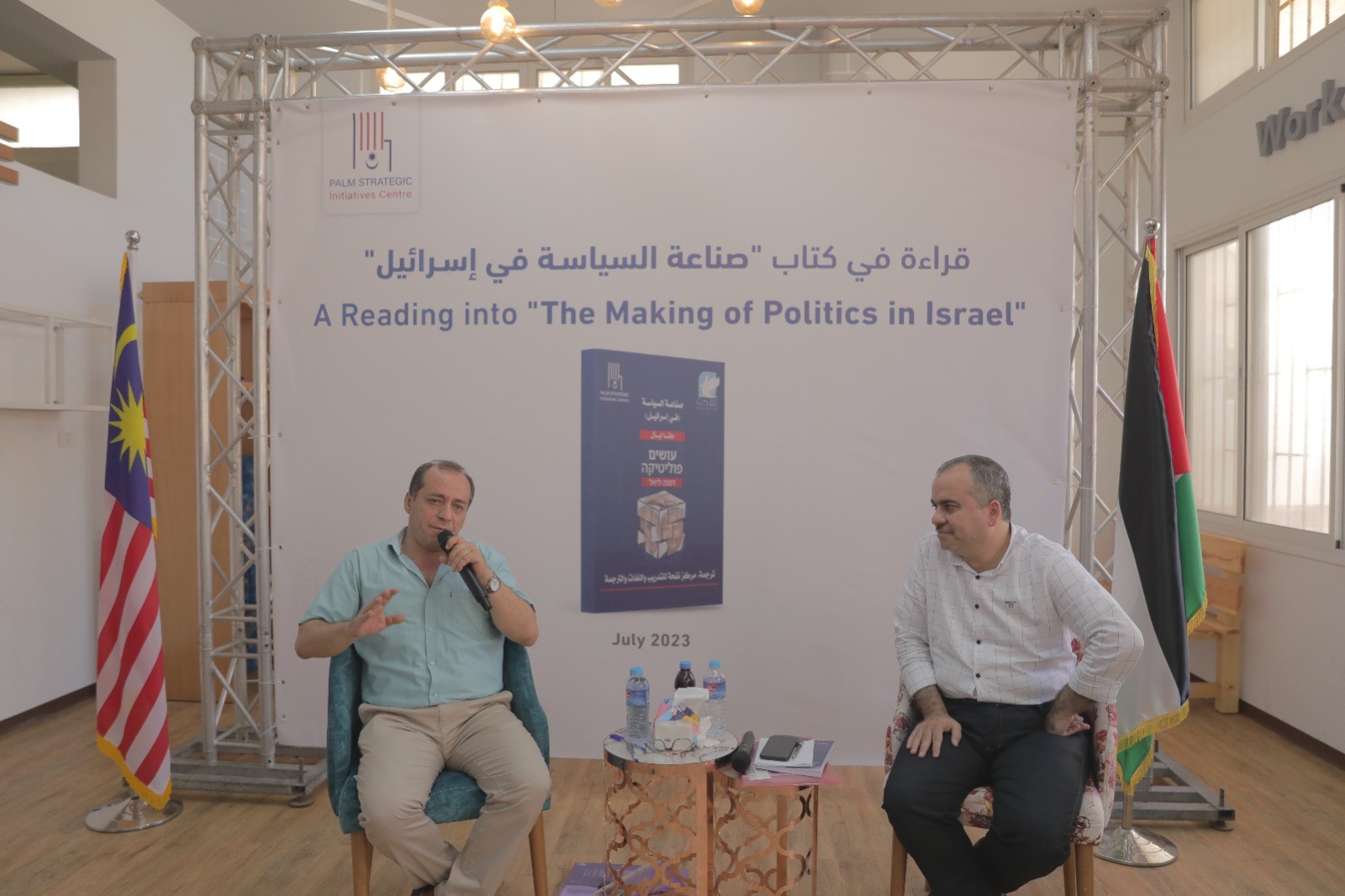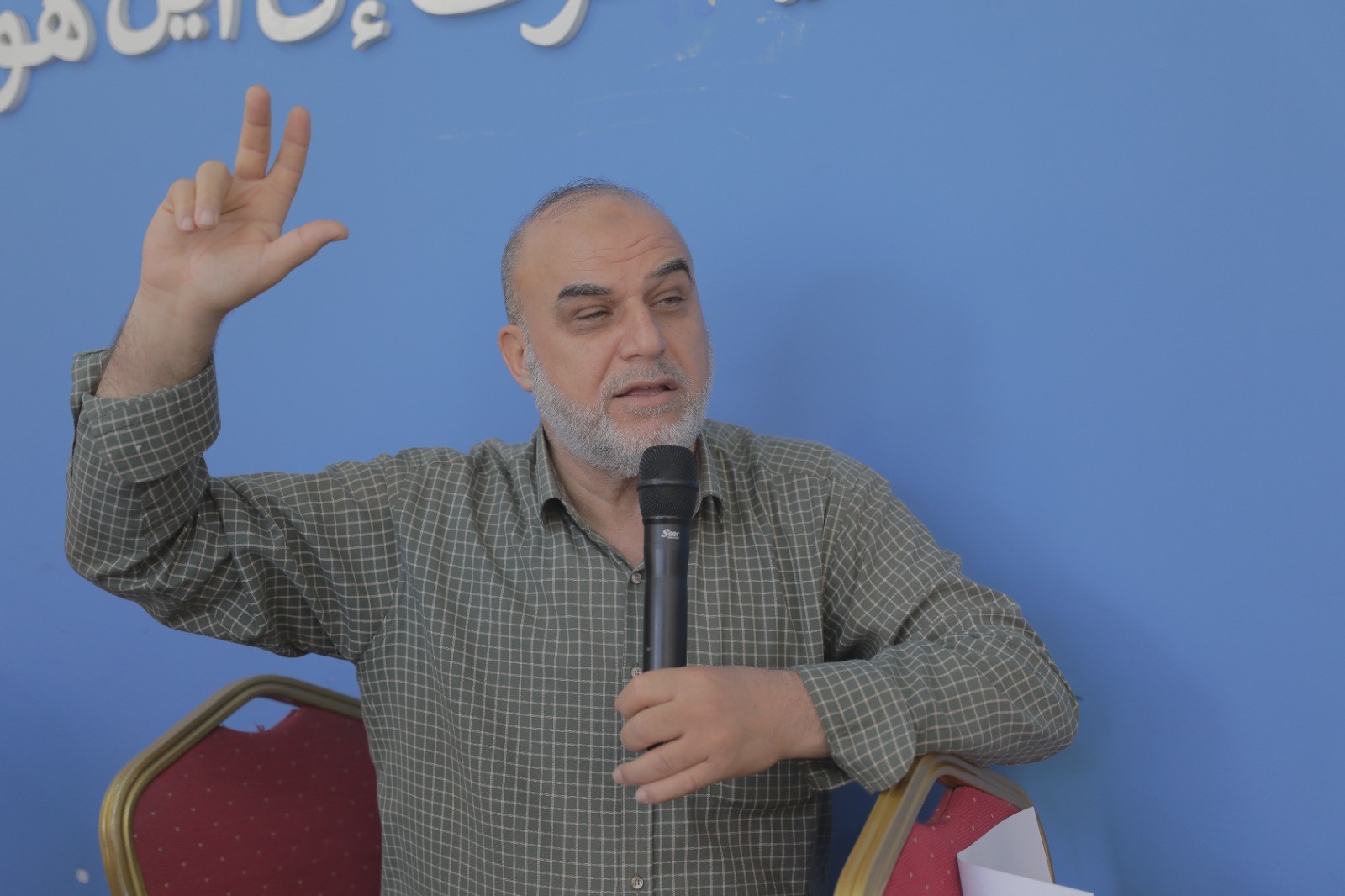On Wednesday, researchers and experts in Israeli affairs addressed the translation of the Israeli book "The Making of Politics in Israel" by the Nafha Center for Training, Languages, and Translation, which was funded by the PALM Strategic Initiative Center.
This occurred during a symposium organized by the PALM Strategic Initiative Center on a reading into "The Making of Politics in Israel" at the Malaysian incubator's headquarters in Gaza. It's noteworthy to point out that many academicians, researchers, and other people with an interest in Israeli affairs attended this symposium.
The author of this book is an Israeli named Dafna Leaal, and it explains how politics is made within the Israeli occupation entity. The elements that influence the making of Israeli politics were broken down into four key topics: the Arab-Israeli conflict, flaws in Israeli politics, the politics-narrative update, and how politics is usually put in Israel.
The main goal of this book's translation is to direct those who are concerned about Israeli politics in the right direction so they can comprehend how Israeli politicians typically think, and how to use this understanding to support the Palestinian cause.
Ibrahim Habib, a national security expert, assured that the Oslo Accords were contested within Israel's political circles between a supporter and an opponent, which gave rise to the notion of ideological conflict in handling the Palestinian issue. Hence, the Palestinian-Israeli conflict has been the subject of numerous initiatives to resolve it, all of which have fallen short. This is because all of these initiatives were based on the elimination of Palestinian existence and the absence of a Palestinian State, as well as Israel's comprehensive occupation of the occupied West Bank.
The making of Israel's politics, according to researcher and political science professor Wajeh Abu Zarifa, is inflexible. Its composition is not dependent on the conditions and factors around it, and the right-wing and left-wing parties make up the majority of its concept with their own rules and standards. He said that although 64% of Israeli society is right-wing, the dominant agenda is more the left's policy of breaking away from the Palestinian people on various levels, such as geographical, historical, cultural, demographic, and political, which makes the construction of an independent State of Palestine impossible.
In his speech, Ahmad Al-Falit, the director of the Nafha Center and an expert on Israeli affairs, discussed the history of Israeli elections and the effect of Palestinians in the occupied territories of 1948 on their outcomes, when they are a majority in the occupied Palestinian cities, along with the attempts made by Israeli political officials to marginalize them.
Israeli expert Saeed Bsharat noted that because Israeli society is multifaceted and made up of many different countries and cultures, as well as many religious groups, Israeli politics is among the most complicated in the world. Bsharat also discussed how Israeli politicians used social networks and other digital platforms to spread their ideologies and design policies based on technological advancement, especially on social media sites, to have an impact on Israeli society.
According to professor and researcher Ashraf Sammur, the magnitude of the disparity in attitudes among Israeli officials, both before and after the elections, was very large. This vividly appeared in the Israeli government's failure to maintain the Israeli government and the repeat of elections more than once in the past two years, which indicates the weakness and fragility of the Israeli entity.
Imad Abu Rahma, a researcher and adviser to the Palestinian Center for Policy Research and Strategic Studies "Masarat," in-depth described how decisions are made in Israel's Cabinet. Also, he confirmed that the Cabinet has too many issues, which makes politics and decision-making challenging.
At the end of the symposium, discussions were opened up for participants to share their opinions and suggestions on how to utilize the information in this book to create practical measures toward the liberation of Palestine.
